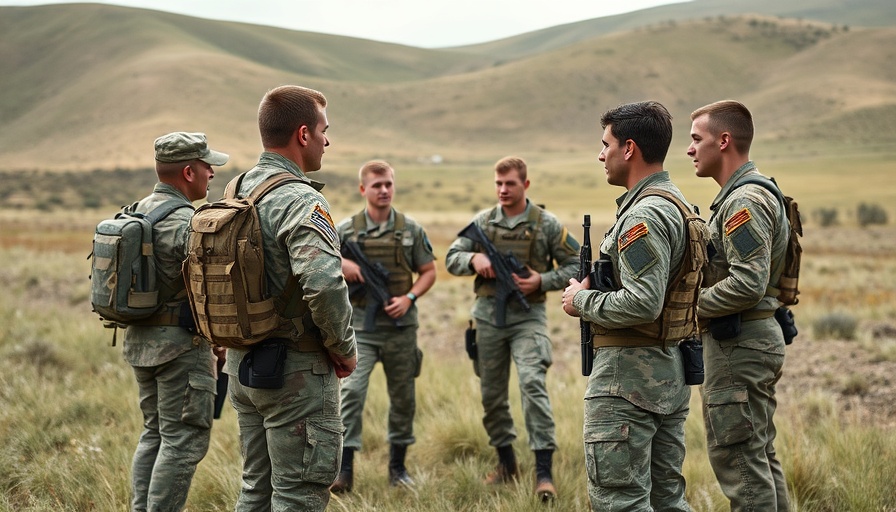
Transforming Warfare: The Rise of Drone Technology in the Marines
As we step into an era of advanced technology, the U.S. Marine Corps is fully embracing the integration of drones into military operations. This shift marks a significant transformation in how battles are fought and strategies are conceived. At Camp Pendleton, Marines are participating in intensive training sessions designed to enhance their skills in both offensive and defensive drone operations. Corporal Christopher Magana Pinawin represents the new generation of soldiers who see drones as pivotal tools in modern warfare, recognizing that their functionality and lethality can change the dynamics of combat.
The Evolution of Drones: From Toys to Tactical Tools
Reflecting on his personal journey, Corporal Magana Pinawin recalls his childhood fascination with a simple battery-powered drone. Now, as a Marine, he's mastering sophisticated attack and reconnaissance drones, illustrating the tremendous leap in drone capabilities over the past decade. "It’s definitely a great capability," he states, signaling the dual nature of this technology—both a game-changer on the battlefield and a tool requiring sound tactical understanding and countermeasure training.
Working Against The Clock: Simulated Battle Scenarios
The Marines' training sessions simulate various combat scenarios, including defending a base from incoming attack drones. During these exercises, soldiers must react quickly to neutralize threats while simultaneously employing jamming technologies to protect their positions. These drills not only test their technical skills but also enhance teamwork and critical thinking under pressure.
The Global Context: Why Drones Matter Today
As drone usage expands globally, evidenced by their crucial roles in conflicts such as those between Ukraine and Russia or in Israel, the Marines are proactively evolving to counter emerging threats. Lt. Col. Nick Freeman emphasizes the importance of drone technology within military strategy, highlighting how proactive integration prepares the Marines for modern warfare realities.
The Broader Military Impact
This focus on drone training has implications extending beyond the battlefield. The establishment of an attack drone team at Quantico, linked to the Marine Corps Warfighting Lab, underlines the commitment to developing efficient tactics that respond to the current landscape of warfare. As drones become ubiquitous in military strategy, their significance will only grow.
What This Means for the Future of Warfare
Looking ahead, the ongoing integration of drones into Marine training programs qualifies them as critical tools for future armed conflicts. The advancements in drone technology carry with them not only military advantages but also a host of ethical and operational considerations that must be navigated by military leaders. As the technology evolves, so does the responsibility to maintain ethical standards and the safety of civilians, amplifying the need for comprehensive training.
Conclusion: The Path Forward
The advancements in drone capabilities at Camp Pendleton are more than just tactical exercises—they reflect a broader shift in military strategy aimed at preparing today's forces for tomorrow's realities. The world is watching as these young Marines harness technology that could redefine combat. As we move forward, it's vital to support our military’s efforts to adapt and innovate, ensuring that they remain prepared for various challenges on the horizon. Consider engaging with your local representatives about military innovation initiatives, as they play a crucial role in shaping a robust defense strategy for our nation.
 Add Row
Add Row  Add
Add 



Write A Comment